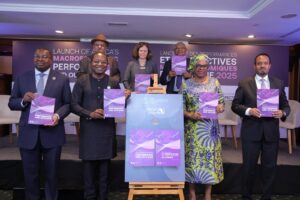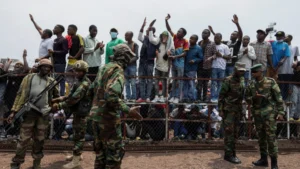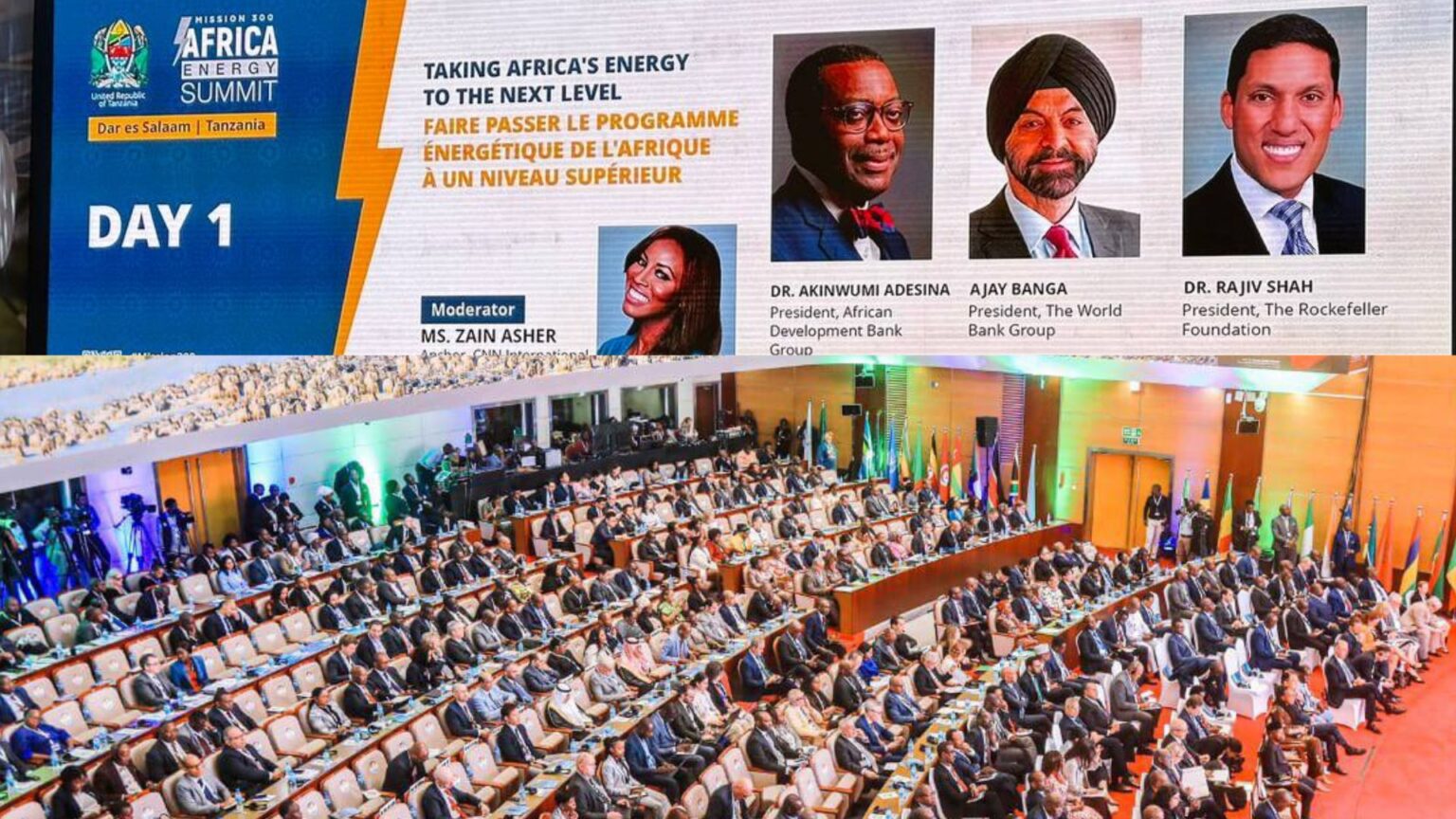- The World Bank is leading Mission 300 Africa energy summit in Dar es Salaam.
- Currently, over 600 million people in Africa lack access to electricity.
- World Bank, IMF commit 30 million to the Mission goals
The World Bank Mission 300 energy summit has described Tanzania as a lighthouse and beacon for other African nations to follow when it comes to producing and distributing electricity to its people. The statement was made at the World Bank led Mission 300 Africa energy summit, which brings together Heads of State from all across the continent alongside development partners and private sector players.
The summit’s main goal is to commit key stakeholders to ambitious reforms and actions to expand access to reliable, affordable, and sustainable electricity to 300 million people in Africa by 2030. “300 million of 600 million is not a small number. It is an enormous task and in the past, what lacked before is predictability which would reassure investors of returns if they put their money in this sector, predictability” said AJ Banga President of the World Bank.
He said unpredictability in regulation leaves people with the option of taking their money and investing elsewhere. Banga insisted that predictability is the fundamental change of the new compact; predictability in data, predictability in land acquisition, “and predictability in all t he parts that are required for the pact to take place.”
During the summit, the World Bank President lauded Tanzania for what he described as; “enormous progress, a lighthouse and beacon to African countries for its efforts in increasing access to electricity in the past few years and its ambitions to do more in the future.”
“The next stage of the compact is figuring out what is required to implement it. We are using geo-spacing to determine whether a house should be connected to the national grid…or is it cheaper, quicker, faster to connect them to distributors…solar and other renewables.”
The third part is financing; “where do we get the money we need…the needed financing is both on behalf of governments. Private sector, …we have actually brought in the IMF in to help governments create the fiscal headroom that they need,” the World Bank President explained.
He added that it is also vital for African countries to follow Tanzania’s example in regional connectivity, citing that the East African country is already part of a four regional electricity sharing partnership and is trying to get to a fifth. “This is something we need across the continent,” he noted.
Dr. Rajiv Shah President Rockfeller, underscored the fact that, for this Summit and ‘Mission’ to take off, then all the initiatives must be African led. That said, he commended the fact that over 30 African Heads of State are attending the Summit in Tanzania and are signing their national compacts and declarations to the goals of Mission 300.
He cited the $30 billion that the World Bank and IMF are putting into the mission, and with that, the private sector can be confident enough to bring in their own investment. “The goal of this summit is to bring about the needed regulatory and policy framework by African governments that will allow the private sector to act…universal electrification has not been possible anywhere in the world without public funding or public support,” he said.
“Over 600 million people in Africa don’t have access to electricity …this stifles economic growth, education, healthcare…electricity is crucial in terms of unlocking Africa’s potential,“ said Zain Asher, CCN news anchor who moderated the opening talks of the summit.
The Dar es salaam energy declaration, outlining commitments and practical actions from African governments to reform the energy sector, and the first set of national energy compacts, which will serve as blueprints with country-specific targets and timelines for implementation of critical reforms.
Dr. Akinwumi A. Adesina, the President of the African Development Bank Group (AfDB) said; “Our mission is to say we need everybody, even though we represent the big organizations. It is the people that are not here that matter, those that run small businesses and are just trying to get access to electricity, these are the ones that run our economies.”
“We must hear and understand what they say and need, and make sure that this summit is an action driven summit,” he said, adding, “African governments must scale up their own budgets to support electrification of their countries,” he summed up.
What is World Bank-backed Mission 300?
Mission 300 is a collaboration between the AfDB, the World Bank Group, and global partners to address Africa’s electricity access gap using new technology and innovative financing.
The Tanzania Summit, which closes today, is the brainchild of the World Bank and the AfDB working together with key stakeholders. “Several heads of state and government from Africa joined more than 1,000 private sector actors to chart Africa’s course toward universal access to energy,” the organizers said.
The summit is expected to yield two significant outcomes; first the Dar es Salaam Energy Declaration, outlining commitments and practical actions from African governments to reform the energy sector, and secondly, the first set of National Energy Compacts, which will serve as blueprints with country-specific targets and timelines for implementation of critical reforms.
In the first phase, 12 countries will present their energy compacts: Chad, Côte d’Ivoire, the Democratic Republic of Congo, Liberia, Madagascar, Malawi, Mauritania, Niger, Nigeria, Senegal, Tanzania, and Zambia.
Other African countries are expected to develop their compacts in subsequent phases.
Read also: Lighting Up Africa: The Transformative Power of Mission 300




